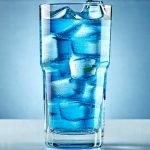Carbonated beverages – from classic sodas to sparkling water and flavored seltzers – are ubiquitous in modern diets. Many people enjoy their refreshing fizz, but the impact of these drinks on digestive comfort is a frequent topic of discussion. Understanding how carbonation interacts with the digestive system can help individuals make informed choices about beverage consumption and potentially mitigate any discomfort they might experience. This article will explore the relationship between carbonated beverages and digestion, focusing on common concerns and potential contributing factors to varying individual experiences.
The digestive process is complex, involving mechanical breakdown of food alongside chemical digestion facilitated by enzymes and acids. Introducing a bubbly liquid into this system can have several effects, some more noticeable than others depending on an individual’s sensitivity and the type of carbonated beverage consumed. Factors like sugar content, acidity, and overall volume play significant roles in how these drinks affect digestive comfort.
Understanding Carbonation & Digestion
Carbonation itself is simply the process of dissolving carbon dioxide gas into a liquid. When ingested, this dissolved gas is released, creating bubbles. This release can lead to feelings of bloating or distension for some individuals as it increases pressure within the stomach and intestines. However, this effect isn’t universal; many people experience little to no noticeable discomfort from moderately carbonated drinks.
The extent to which carbonation affects someone often depends on their individual sensitivity and existing digestive health. Conditions like irritable bowel syndrome (IBS) may make individuals more susceptible to experiencing bloating or gas from carbonated beverages, while others might tolerate them without issue.
The Role of Beverage Composition
Beyond the carbonation itself, the ingredients within a beverage significantly influence its impact on digestion. Sugary sodas, for instance, can draw water into the intestines through osmosis, potentially leading to diarrhea in some people. Similarly, acidic beverages like citrus-flavored sparkling waters could exacerbate symptoms for individuals with acid reflux or heartburn. The combination of carbonation and these other factors often dictates the overall effect on digestive comfort rather than just the bubbles alone.
Bloating & Gas Production
Bloating is a common complaint associated with carbonated drinks. As mentioned earlier, the release of carbon dioxide gas contributes to increased pressure in the digestive tract. This can be particularly noticeable in individuals prone to gas or those who consume large volumes of carbonated beverages quickly. The body naturally attempts to expel this excess gas, leading to belching or flatulence.
The speed of consumption also matters; gulping down a fizzy drink introduces more gas into the system rapidly than sipping it slowly, potentially intensifying bloating symptoms. Some individuals might find that consuming carbonated beverages with food helps mitigate these effects, as the presence of solid food slows down gastric emptying and allows for a more gradual release of gas.
Impact on Stomach Acidity & Reflux
Carbonated beverages can temporarily lower the pressure of the lower esophageal sphincter (LES), which is responsible for preventing stomach acid from flowing back up into the esophagus. This weakening of the LES, combined with the acidity often present in these drinks, increases the risk of heartburn or acid reflux symptoms for susceptible individuals. The effect isn’t necessarily prolonged but can be significant enough to cause discomfort.
It’s important to note that different beverages vary in their acidity levels. Citrus-flavored sparkling waters are generally more acidic than plain sparkling water and may therefore have a greater impact on LES function. Avoiding carbonated drinks close to bedtime might also help reduce the likelihood of nighttime reflux episodes.
Digestive Motility & Transit Time
The effect of carbonation on digestive motility – the movement of food through the digestive tract – is somewhat complex and not fully understood. While some believe that carbonation can speed up gastric emptying, potentially leading to faster digestion, others suggest it might disrupt normal peristalsis (the wave-like muscle contractions that move food along). The sugar content in many carbonated beverages can also influence transit time; high amounts of sugar may slow down digestion for some individuals.
Ultimately, the impact on digestive motility varies significantly from person to person and depends on factors like the type of beverage consumed, individual sensitivity, and overall dietary habits. It’s often best to observe how your body reacts after consuming carbonated beverages and adjust intake accordingly.
It is crucial to remember that everyone’s digestive system functions differently. What causes discomfort for one person may not affect another. Paying attention to personal tolerance levels and making mindful choices about beverage consumption are key to maintaining digestive comfort. If concerns persist or symptoms are severe, consulting with a healthcare professional is always recommended. They can provide personalized guidance based on individual health needs and circumstances.


















